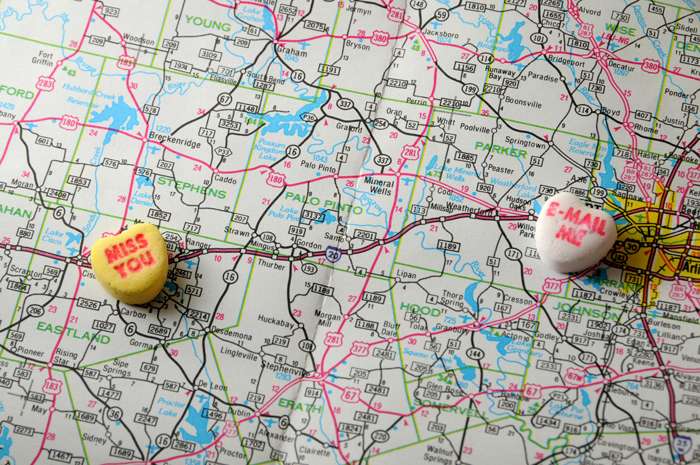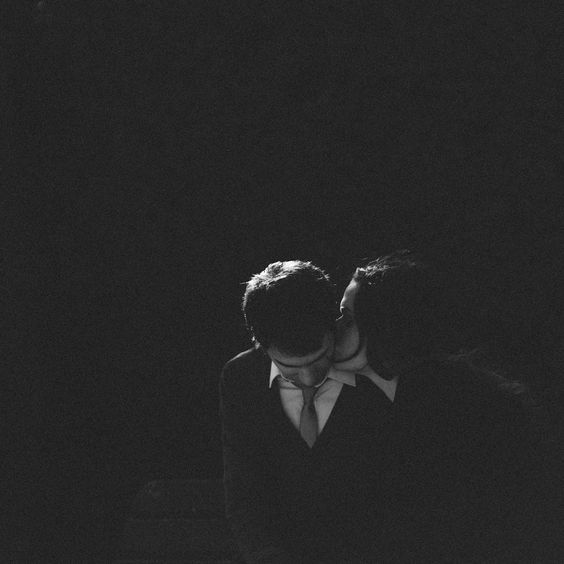The angsty-ness & the awesomeness
/A few weeks ago, we were all sitting around the kitchen table playing music for each other from our playlists. Somehow G and I started sharing all of our old adolescent 80s music, complete with accompanying interpretive lipsyncing, when we hit on a virtual musical time capsule. Has there ever, in the history of music, been a more teen-angsty song than "Somebody" by Depeche Mode?! It catapulted me back to my little dark basement bedroom in Logan Utah, hugging a pillow and wringing out every overwrought emotion that lead singer Martin Gore evoked. I'm telling you, that guy knew his audience. And I wasn't even especially angsty in my regular, daylight hours.
After working with teenagers for the last 10-15 years, I've realized that every last one feels different at some point: outside of the perceived crowd, other-than, left out. As Robert Sapolsky noted in his awesomely titled recent article "Dude, Where's my Frontal Cortex?": "One brain-imaging study reveals the neural depths of adolescent pain in not belonging. Put someone in a scanner to play a video game with two other individuals, and manipulate things so that the subject believes they are being ostracized. In adults, this social exclusion activates the amygdala along with other limbic regions associated with pain, disgust, anger, and sadness. But then the frontal cortex kicks in—“Come on, it’s a stupid game”—and the limbic structures quiet down. Do the same with an adolescent and the frontal cortex remains silent and that agonized limbic network of teenage angst wails."
But this hyper-awareness has a positive side, too. Sapolsky goes on to note that "adolescence isn’t always as dark as it’s made out to be. There’s a feature of adolescence that makes up for the stupid risk-taking and hideous fashion decisions. And that’s an adolescent’s frenzied, agitated, incandescent ability to feel someone else’s pain, to feel the pains of the entire world, to want to right all its wrongs. Adolescents are nature’s most wondrous example of empathy, where the forcefulness of feeling as the other can border on nearly being the other.
"This intensity is at the intersection of so many facets of adolescence. With the highs higher and lows lower, the empathic pain scalds and the glow of having done the right thing makes it seem plausible that we are here for a purpose. Another factor is the openness to novelty. An open mind is a prerequisite for an open heart, and the adolescent hunger for the new readily presents opportunities to walk a mile in someone else’s shoes."
Case in point: when Sapolsky's young daughter performs in a heavy play about Bosnia, he notices the effect the performance has on some teens in the theatre:
"Some high school kids had come to a performance as a group outing for an English class. About halfway through the play, my daughter’s character appears for the first time, cautiously emerging from a ventilation duct in her kitchen where she’d been hiding, unaware that the soldier who had just left the apartment after killing her mother was going to return. Up until that point, she had only been hinted at as a character. The soldier had his ethnic-cleansing to-do list of names of Bosnians in the building to kill, and kept demanding of the mother, “Where’s your daughter? It says you have a daughter.” “I don’t have a daughter,” the mother repeated up until her death. So as the girl begins to emerge from the ventilation duct, the realization sweeps through the audience: there is a daughter. As my daughter began to crawl out, the teenagers in the audience did something you’re not supposed to do in a theater, something no adult with a developed frontal cortex would do. After a moment of hushed silence, two or three voices called out, “No!” Another called, “Go back in, it’s not safe!,” another, “He’s coming back!” After the play, the teenagers clustered around my little girl when she came out of the stage door, hugging her, reassuring themselves that both she and her character were OK.
Oh, the feels, as the kids say. I try to remember how powerful and vivid those emotional rapids felt and that they're intensified by brain development and hormones and just...life. The teen behaviors might keep screaming Dude, where's my frontal cortex? but we parents have enough to spare and share until our kids find their own.
The whole Sapolsky article is a good read on teen brain development. (Thanks, Tona!)
Okay, friends. Here's what I need to know: What were your go-to angsty songs as a teenager?


















